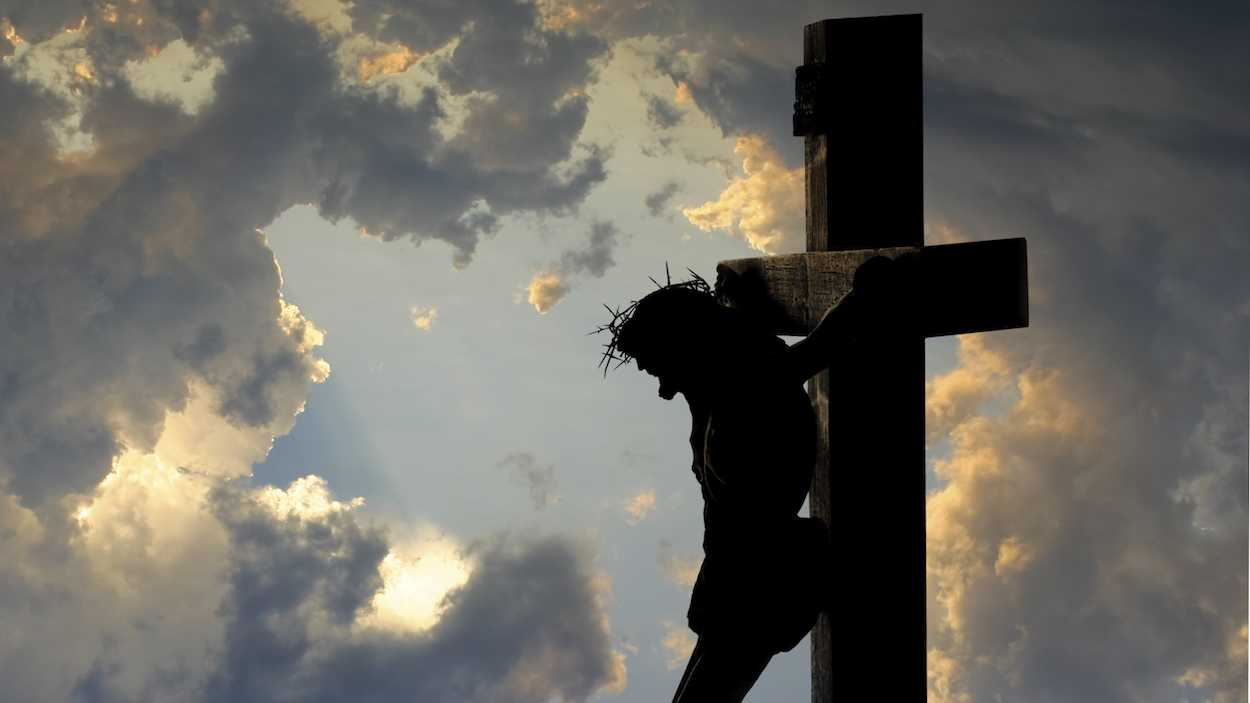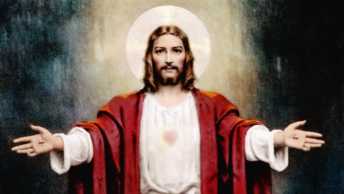A priest living in Washington D.C. went to the airport to pick up a visitor from Africa whom he had befriended while serving as a missionary there. It was a cold, winter day; there was no snow on the ground, but everything was gray and bare. When the African arrived and saw this, he remarked, “I had heard about this, but I didn’t realize things were so bad here.” When Father asked him what he meant, the visitor explained, “I had heard the air pollution in America was a problem, but I didn’t know it had turned everything gray and killed all your trees!” Coming from a land where everything was always warm and green, the African had a very different—and in this case, mistaken—perception of winter than did the American (Fr. Joseph Donders, as quoted in Guiding Light: Feed My Soul, Year C, p. 6, by Fr. Joe Robinson). People can have very different perspectives on things. A mother once noted how each of her three children would react if they found a spider web in the garden. The oldest son, she said, would carefully examine the web and wonder how the spider wove something so beautiful. Her daughter, the middle child, would look all around in fear and worry that the spider was near enough to begin crawling on her. The youngest, a little boy, would exclaim, “Oh, look! A trampoline!”
Our perspective helps determine our experience of reality. A boy named David was bumped getting on the school bus one winter morning and suffered a two-inch cut on his cheek. During recess he collided with another boy, loosening two of his teeth. Later he fell while sliding on the ice and broke his wrist. At the hospital his dad found him tightly clutching something with his good hand. David said excitedly, “Dad, I found this quarter on the ground when I fell. It’s more money than I ever found before—this is my lucky day!” (homily notebook, “Perspective”). It is indeed the case that our mental outlook plays a huge role in how we experience life—and this truth also applies to our relationship with God; what we view as an inconvenience, problem, or even tragedy may in fact be an important part of His plan of salvation. That’s why it’s so important to trust in Him—and those who do so will receive His blessings and peace.
The history of the Jewish people is an amazing story of suffering, tribulation, and redemption. Over 500 years before Christ their holy city of Jerusalem was captured by the Babylonians; their sacred Temple was destroyed, and the people led away into exile. However, the prophet Baruch foretold a coming day of restoration and rejoicing, in which the people would offer God true worship and share in His glory. After seventy years of exile, the Jews were in fact set free and able to return to Jerusalem, but by the time of Jesus they had been subjugated by the Roman Empire. John the Baptist began preaching during an age when the people were feeling oppressed and chafing against foreign rule. They saw misery and misfortune, but John saw the coming fulfillment of God’s promise of salvation. This, of course, was achieved by Jesus, the long-awaited Messiah—but in a spiritual sense, not an earthly one. Because St. Paul, himself a Jew, understood this truth and accepted God’s plan, he was able to rejoice despite constant challenges, sacrifices, and sufferings. For Paul, the Philippians were favorites among his many converts because they were truly open to God’s grace. Despite their many hardships, Paul was certain that they would increase in love and in their perception of what was truly important.
A tornado that struck New England once toppled over a row of majestic pine trees which an elderly woman’s parents had planted many years earlier; these beautiful and stately trees had been her pride and joy. However, when a neighbor came to commiserate over their loss, the woman insisted, “Nonsense. I just realized I have three things to be thankful for. First, no one here was killed by the tornado. Second, my home was completely untouched. Third, now for the first time in 50 years, I can see the great Green Mountains of New Hampshire!” (James F. Colaianni, Sunday Sermons Treasury of Illustrations, p. 381). When God takes away something that we cherish, it’s always because of His love for us. Perhaps our life has become so unbalanced that our relationship with the Lord or with other people is endangered; if so, removing the cause of the danger is a painful but necessary step in ensuring our long-term happiness. Maybe the Lord is removing one blessing so that He can give us an even greater one; it’s hard to appreciate it when it happens, but if that’s the case, it truly is the best thing for us. It’s also entirely possible the Lord is calling us to a deeper stage of spiritual growth, and that an essential part of the process involves sacrifice and self-surrender on our part. We almost certainly won’t understand or enjoy the experience at the time it occurs, but from the vantage point of eternity everything will make perfect sense, and we’ll be forever grateful to God that He gave us not what we wanted, but what we truly needed.
The closer we come to Jesus, the more our perspective on life grows and matures. Despite the enmity of the religious leaders and the opposition of this world, He gave us an example of perfect trust in His heavenly Father—and as His followers, we must try to imitate Him. It wasn’t easy for the prophets Baruch and John the Baptist to proclaim a message of hope in a time of widespread despair, but they were faithful to their calling and thereby became instruments of God’s grace. The Lord is asking this same response of trust from us. Just as these weeks of Advent are a time of preparation for the coming joy of Christmas, so are our lives on earth—despite their difficulties and challenges—meant to prepare us for the happiness and glory of eternity. Tragically, for far too many people life is sorrowful, empty, and pointless—but the message of the Gospel proclaims a very different reality, and we can only truly experience and embrace it if we choose to look for and see everything from God’s perspective. Our heavenly Father has a plan for each one of us. We don’t have to understand it, but we do have to accept it—for this is how the crooked paths of our faults and weaknesses will be made straight, the mountains of our sins and failings will be made low, and the rough ways of our lives will be made smooth, thereby becoming a glorious highway leading us home to Heaven.








